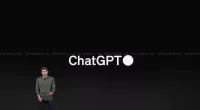Meta-owned popular messaging platform, WhatsApp, is now reportedly testing a new ‘message translation’ feature in its Android beta version 2.25.12.25. As the name suggests, this feature enables users to translate chat messages and channel updates directly within the app, according to a report by WABetaInfo.
It clearly aims to enhance cross-language communication while maintaining user privacy. Speaking of the working process, translations are processed locally on the user’s device, ensuring that message data is not sent to external servers.
To use this feature, users must download specific language packs – supported languages currently include Spanish, Arabic, Portuguese (Brazil), Hindi, and Russian. Even an optional language pack is also available for automatic detection of the message language, which is particularly useful in multilingual group chats.
Interestingly, users can activate the translation feature on a per-chat basis through the chat settings, allowing for automatic translation of incoming messages. Alternatively, individual messages can be translated manually by selecting the ‘Translate’ option.
However, since translations are handled on-device, they may not always match the accuracy of cloud-based services. But at the same time, this method ensures that end-to-end encryption is preserved, and user data remains confidential. This becomes significant considering earlier this year, the social media giant added a memory feature to its AI assistant – ‘Meta AI’. This feature enables the AI assistant to remember certain details that users share with it during one-on-one chats on WhatsApp and Messenger.
The platform also gives users the option to provide feedback on translations to help improve the feature, but no message content is shared with Meta unless explicitly submitted by the user. In terms of availability, the translation feature is gradually rolling out to beta testers and is expected to become available to all users after the testing phase completes.
The latest move is noteworthy as WhatsApp’s global user base has reached around 2.5 billion active users, with projections indicating a rise to 3.14 billion by the end of 2025. Also, India remains the largest market, with over 535.8 million users.
Meanwhile, the development comes at a time when the social media powerhouse is undergoing major regulatory challenges. Actually, the US Federal Trade Commission (FTC) has initiated a historic antitrust trial against Meta, aiming to compel the divestiture of WhatsApp and Instagram. The FTC contends that Meta’s acquisitions of these platforms were strategic moves to eliminate competition and establish a monopoly in the personal social networking market.
The Tech Portal is published by Blue Box Media Private Limited. Our investors have no influence over our reporting. Read our full Ownership and Funding Disclosure →






